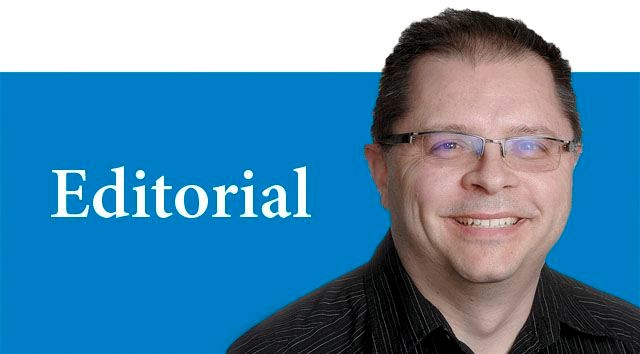Justin Trudeau seems to be the second coming of Stephen Harper. The difference is Harper made no apologies about being a wolf while Trudeau wants people to think of him as anything but.
A decade ago, Harper was entering his second year as the prime minister of a minority government. He was elected not because the Canadian public had grown to like him and his party (they hadn't) but because voters were furious with the Liberals, the findings of the Gomery inquiry being the last straw.
Harper won two more elections - another minority in 2008 and his first and only majority in 2011 - not because voters grew to like him and his party (they never did) but because the Liberals were a mess and the NDP weren't considered ready to lead.
Harper got his majority in 2011 because the Liberals got pasted for the third straight election, falling to the third party for the first time in history.
Jack Layton became the NDP's first opposition leader, thanks to the collapse of the Bloc Quebecois in la belle province.
The Liberals were finished, forced to elect their fourth leader in a decade after the defeats of Paul Martin, Stephane Dion and Michael Ignatieff. Layton looked like the prime minister in waiting.
Then everything changed, as it always, inevitably, does. Layton died of cancer less than four months after the 2011 election and his replacement, Tom Mulcair, didn't excite voters, in Quebec or anywhere else, the way le bon Jack did. Meanwhile, the Liberals, with few options, decided maybe it was time to let Trudeau have a turn.
The last name aside, the expectations couldn't have been lower. Basically, they picked him because he couldn't be any worse than the two guys before him.
Trudeau's victory in 2015 wasn't because of sunny ways or a fresh new (and isn't he handsome?) face or gender equality or a plan to legalize pot. Trudeau's majority was almost identical to Harper's 2011 majority.
Two major parties saw a collapse in public support and those votes went to Trudeau.
Under Mulcair, the NDP went back to being the third party they always were before 2011 and the voters, especially outside of Alberta and the B.C. Interior, were ready to elect somebody, anybody, other than Harper.
His loss exposed the fact he and his party were never liked but they came out ahead when the popularity contest was with the grouchy Dion, the smug know-it-all Ignatieff and a Layton that needed time to build himself and his party.
Trudeau enjoys even better perks than Harper in his first term, thanks to a majority government and both major opposition parties with lame-duck temporary leaders while in the midst of choosing a new face to lead them in the next election. Yet Trudeau seems to be intent on making all of the same mistakes Harper did, only faster.
Like Harper, Trudeau seeks to implement sweeping change that will be nearly impossible to undo by future prime ministers and ruling parties. Like Harper, Trudeau has little tolerance for dissent among party ranks and for disagreement with his political and social worldview. "Because it's 2015" wasn't just Trudeau's defence of the first gender-balanced federal cabinet in Canadian history, it was a retort from a man so certain in his righteousness that he doesn't actually have to explain his choices to anyone who finds fault.
Trudeau had to disguise that disdain, of course, so he wrapped it as modern and progressive.
Strip away the "you've come a long way, baby" feminism and Trudeau's reply is actually "because I'm the prime minister."
At least Harper would have had to nerve to come right out and say it.
Same goes now for Trudeau's efforts at parliamentary reform. Harper made little effort to frame his efforts to change, use and manipulate the parliamentary rules as something good for Canadians and good for democracy. Under Harper, those actions were good for Harper and the Conservatives to keep those colluding bleeding-heart Liberals and orange socialists at bay. Under Harper, the Liberals cried that those actions spelled the end of Canadian democracy as we know it.
Trudeau and his ministers are dressing up their reforms under warm and fuzzy catch phrases, like efficiency and accessibility.
Underneath the sweetness and light, however, lies the same contempt Harper had for his political opponents and for anyone else with the audacity to disagree, in whole or part.
That means Trudeau is using the power of the office to set the parliamentary rules in favour of what's good for him and the Liberals (because that's so obviously what's good for Canada and Canadians, right?).
The irony runs both ways. As the Liberals have flipped on this issue now that they're in power, so have the Conservatives now that they're not. Just listen to the Tories squealing in despair that Trudeau's reform proposals spell the end of Canadian democracy as we know it.
The names and the issues have changed with Trudeau as prime minister but the governing style hasn't changed much and there's nothing at all separating the last two prime ministers when it comes to reminding everyone who's the boss and what he's prepared to do to get his way.
-- Managing editor Neil Godbout



